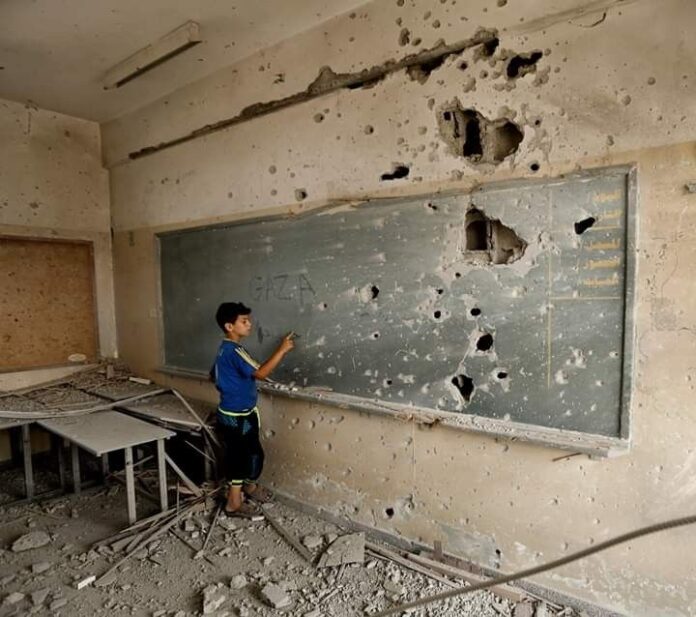Gaza is not an independent state, akin to Israel, and it lacks full sovereignty, self-governance, and military capabilities. It’s crucial to understand that Gaza is an occupied territory, controlled by Israel. Israel has authority over what enters and exits Gaza, managing borders, airspace, water, electricity, food supply, imports, exports, medical supplies, and even humanitarian aid. Palestinians in Gaza do not have the freedom to move in and out at will; they must obtain special permission from Israel for entry and exit. Israel imposed a full military blockade on Gaza in 2006, exerting control over virtually every aspect of life there. Gaza is often referred to as the world’s largest open-air prison, as Israel retains the power to manipulate the living conditions of the two million Palestinians confined within its borders.
Even basic essentials such as electricity, water, and food are subject to Israeli control. In some instances, Israel restricts the electricity supply to as little as three hours a day. Furthermore, Gaza lacks the right to have its own airport. Israel demolished Gaza’s airport in the early 2000s, and because it controls the airspace, Gaza cannot rebuild it. Palestinians must obtain permission from Israel to leave Gaza, and if they are granted permission, they must journey by bus from the Gaza-Egypt border to the airport in Egypt, illustrating the extent of control exercised by Israel over Gaza’s residents.
This dire situation provides a glimpse into the harsh realities of life in Gaza under Israeli control. It is essential to dispel the misconception that Israel is providing proper care for the people living in Gaza. Instead, they are subjected to harsh restrictions and living conditions that are far from humane. Gaza is home to two million Palestinians, residing on a narrow strip of land measuring just 25 miles by five miles. When Israel bombs Gaza, causing hundreds of casualties and thousands of injuries, it has full authority over humanitarian aid entry, often obstructing its delivery, be it through the waters or the Egyptian border.
The Israeli propaganda machine has never been so well-oiled to dehumanize the Palestinians and justify the genocide in the Gaza Strip.#Gaza_under_attack #PalestineUnderAttack pic.twitter.com/hLjhdJOfWi
— Carlos Latuff (@LatuffCartoons) October 12, 2023
The Gaza Strip, or Gaza, stands as a direct consequence of the establishment of the settler colonial state of Israel. Before 1948, Israel did not exist; the region was known as Palestine. During this period, Palestine was under British colonial rule, and in a historic decision, Britain laid the foundation for Israel on Palestinian land, initiating the ethnic cleansing of Palestinian communities. This led to more than three-quarters of a million Palestinians being forcibly displaced from their homeland. Thus, the State of Israel was born. From that moment onward, the size of Palestinian land has steadily diminished. What remains today is the Gaza Strip and the West Bank, both under Israeli control.
It is essential to note that while Hamas holds administrative power in Gaza, Israel remains the de facto governing authority. Gaza lacks a military force, and any form of protection for Palestinians there is provided by militant resistance groups, like Hamas. These groups operate with significantly less military power than Israel, which receives a substantial amount of military aid from the United States annually. Even though Gaza might aspire to establish a military, Israel controls the flow of goods into the territory and closely monitors any potential weapons shipments.
The ongoing situation in Gaza remains dire. When Israel carries out military operations, it often results in a heavy toll on the Palestinian population. Despite the urgent need for humanitarian assistance and resources, Israel frequently obstructs their delivery. This ongoing issue underscores the challenges faced by the people of Gaza and their struggle for basic rights and dignity. To gain a deeper understanding of the situation, consider exploring more resources, articles, and videos that provide comprehensive insights into Gaza and its history. The truth is, the fight between Israel and Gaza is far from a fair battle, and the consequences are dire for the people of Gaza who continue to endure immense hardships.


